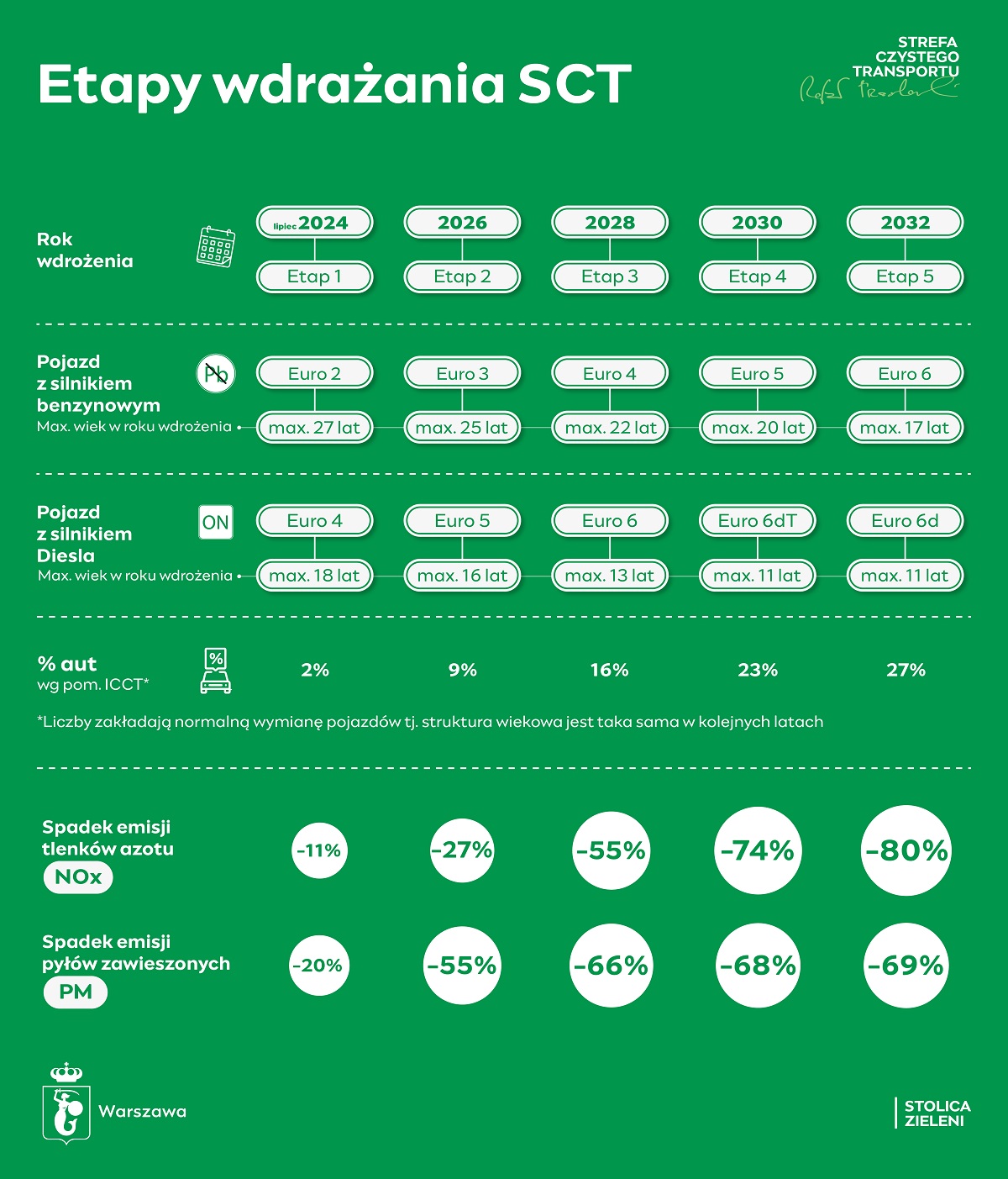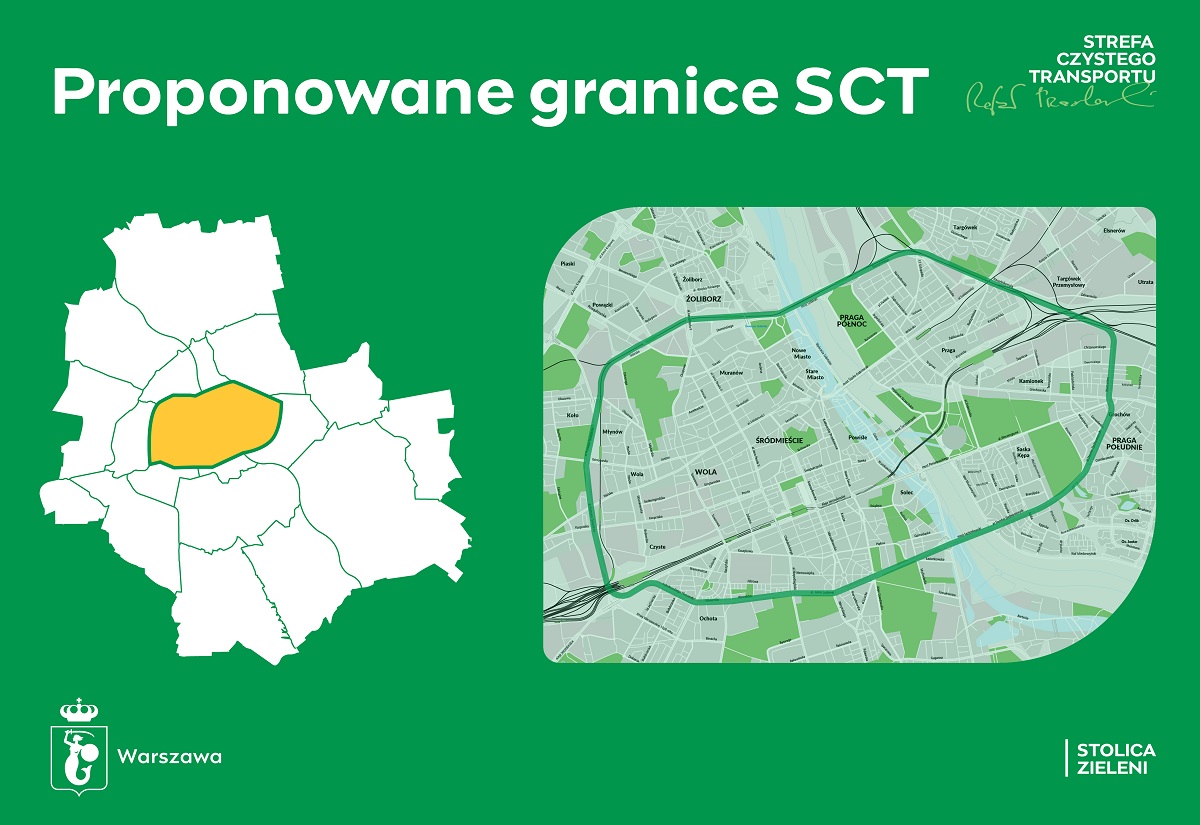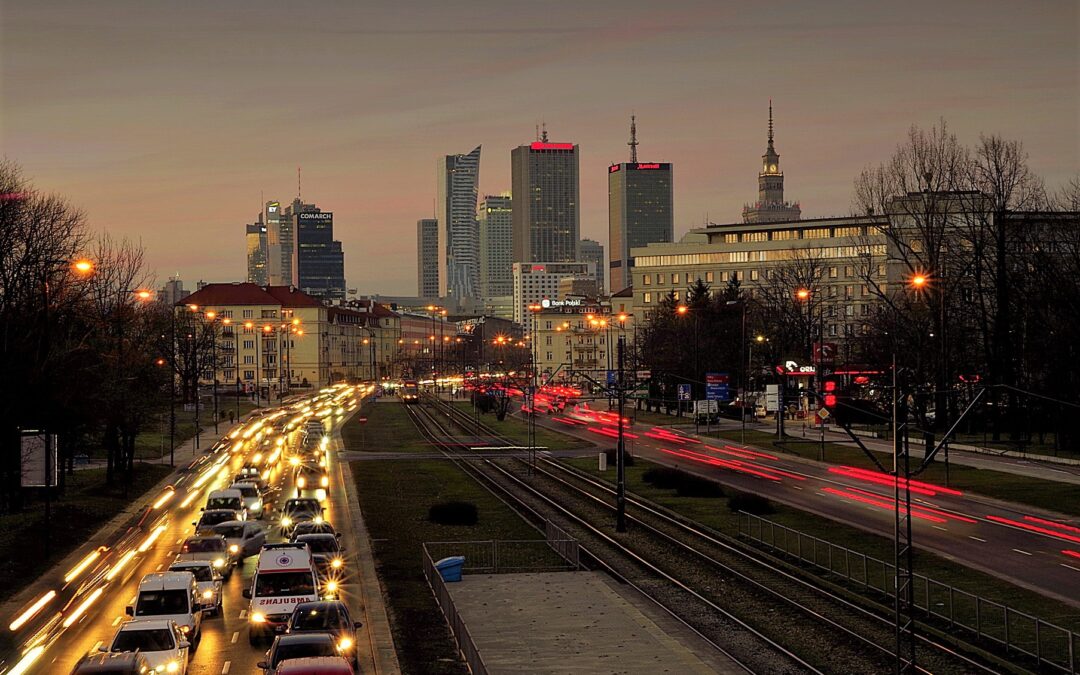Poland’s capital, Warsaw, will next year introduce a “clean transport zone” that will ban old petrol and diesel cars from the city centre. It follows a similar recent move by Kraków, which became the first city in Poland – and the Central and Eastern Europe region – to launch such measures.
From 1 July 2024, diesel cars over 18 years old and petrol cars over 27 years old will not be allowed in the centre of Warsaw, mayor Rafał Trzaskowski announced yesterday.
Those thresholds will then be gradually lowered, until by 2032 diesel cars over 11 years old and petrol cars over 17 years old will be banned. The city calculates that this will lead to an 80% reduction in nitrogen oxide (NOx) and a 69% drop in particulate matter (PM) by that year.

“Clean air in Warsaw is our common aim,” tweeted the mayor. “That is what we strive for as a local government. That is what Varsovians expect of us.”
He claimed that 87% of the city’s residents say they want the local authorities to take action to reduce air pollution (which in Poland is among the worst in Europe) and that 76% support the idea of a clean transport zone.
Trzaskowski also noted that creating such zones in cities with a population of over 100,000 is one of the commitments Poland has made in order to obtain billions of euros in post-pandemic recovery funds from the EU.
Warsaw city hall has proposed a boundary for the clean air zone that covers the entire central Śródmieście district and parts of the adjacent Wola, Ochota, Saska Kępa, Grochów and Praga districts. It will now launch three months of public consultations with residents to decide on the final boundaries.

Bartosz Piłat of Polish Smog Alarm, a group that fights for cleaner air, welcomed the plans but said they are the “minimum” that the city could do. He told TVN that the proposed boundaries of the zone may be too small, allowing some drivers to avoid it and keep using polluting cars.
In November, Kraków announced that it would also begin introducing its ban on older cars from mid-2024. Initially, petrol cars that are over 31 years old and diesel cars more than 27 years old will be barred from roads, dropping to 25 years and 15 years respectively by 2026.
This week it was also revealed that Wrocław, Poland’s third largest city after Warsaw and Kraków, will begin consultations in the spring over introducing a clear transport zone. A decision on its form will then be made next year, reports the Polish Press Agency (PAP).
International studies have consistently found Poland to have some of the worst air pollution in Europe. However, while vehicle emissions are one cause, the primary factor is the burning of fuels – especially coal – to heat homes.
In 2019, Kraków – which had some of the country’s worst smog – banned the burning of coal and wood, a move that is seen to have significantly improved its air. This year, a ban on burning coal will also be introduced in Warsaw.
At the national level, the government has sought to modernise home heating systems and insulation through a subsidy programme. However, it has also expressed opposition to the EU’s plans to ban the registration of new petrol and diesel cars from 2035.

Daniel Tilles is editor-in-chief of Notes from Poland. He has written on Polish affairs for a wide range of publications, including Foreign Policy, POLITICO Europe, EUobserver and Dziennik Gazeta Prawna.




















